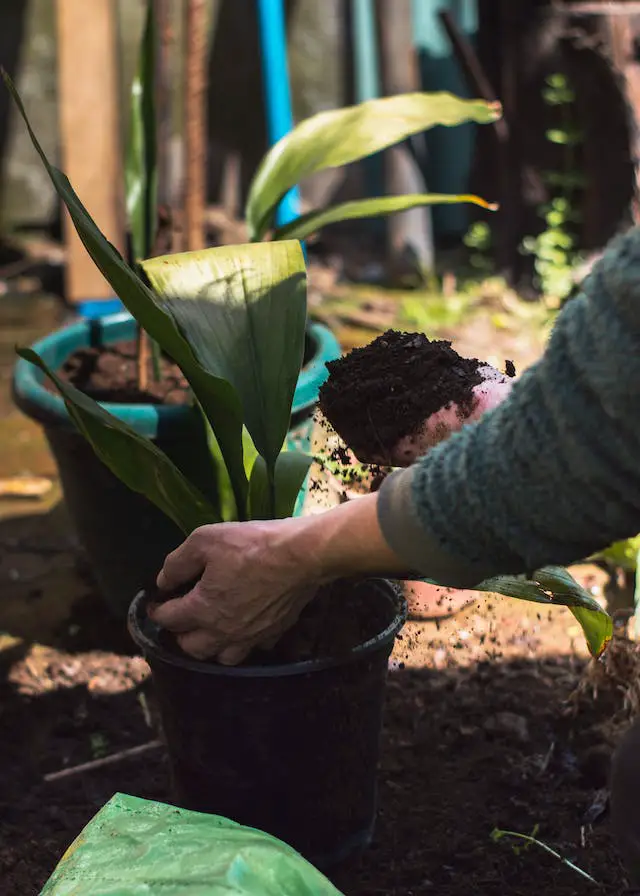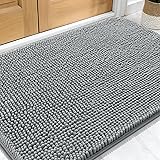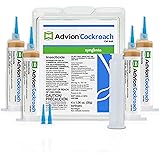Is your garden suffering from the consequences of too much manure? Don’t worry, we’ve got you covered! In this blog article, we will discuss how to neutralize the excess manure in your garden and restore a healthy balance to your soil. Whether you’re a seasoned gardener or just starting out, these practical solutions will help you address the issue and ensure your plants thrive.
So, let’s dive right in and learn how to neutralize too much manure in your garden for a lush and bountiful harvest.
Neutralize Excess Garden Manure: Effective Solutions
Having an abundance of manure in your garden can provide valuable nutrients for your plants. However, if not managed properly, it can lead to imbalances in soil pH, nutrient levels, and overall plant health.
In this article, we will explore effective techniques to neutralize excessive manure in your garden and maintain a healthy growing environment.
The Potential Problems of Excessive Manure
While manure can be a fantastic organic fertilizer, using too much of it can have adverse effects on your garden. Here are some common problems associated with excessive manure:
1. High Nutrient Levels:
Manure is rich in nutrients like nitrogen, phosphorus, and potassium. Applying an excess amount can overwhelm the plants, causing nutrient imbalances and potentially inhibiting their growth.
2. Soil Acidity:
Manure tends to be acidic, and over time, repeated applications can lower the pH of the soil. This can lead to nutrient deficiencies and hinder the availability of essential elements to your plants.
3. Salt Accumulation:
Some manures, such as chicken manure, contain high levels of salt. Too much salt can dehydrate plants, inhibit nutrient uptake, and deteriorate soil structure.
4. Weed and Pathogen Risks:
Manure may contain weed seeds and harmful pathogens. Excessive application can increase weed growth and elevate the risk of disease transmission to your plants.
Read More: About How To Propagate Corn Plant
Testing Your Soil
Before implementing any remedial measures, it is essential to assess the current state of your garden soil. Conducting a soil test will provide valuable information about its pH level, nutrient content, and overall health. You can purchase a soil testing kit or send samples to a laboratory for a more comprehensive analysis.
Steps for Conducting a Basic Soil Test:
1. Select several representative areas of your garden to collect soil samples. Avoid areas where manure hasn’t been applied.
2. Using a trowel or soil probe, dig small holes to a depth of 6-8 inches.
3. Take multiple samples from different spots within each hole and mix them together in a clean container.
4. Remove any visible debris, stones, or plant materials from the sample.
5. Allow the sample to air dry for a day or two, then place it in a labeled plastic bag.
6. Follow the instructions provided with your soil testing kit or send the samples to a local agricultural extension office or a commercial laboratory.
Steps to Neutralize Excessive Manure
Once you have determined that your garden has an excess of manure, it’s time to take action. Implementing the following methods will help neutralize the excessive manure and restore balance to your garden soil:
1. Dilution
One of the easiest ways to address excessive manure is by diluting it with other organic materials. By mixing manure with compost, straw, or other forms of organic matter, you can reduce its potency and spread the nutrients more evenly throughout the soil. This dilution method helps prevent nutrient imbalances and minimizes the risk of salt accumulation.
2. Composting
Composting allows for the natural breakdown and decomposition of organic materials, including manure. The composting process helps eliminate weed seeds, pathogens, and harmful bacteria, making the manure safer for use in the garden. Additionally, composting helps balance the pH levels of the manure, making it less acidic and more beneficial for your plants.
To compost manure effectively:
- Start by preparing a compost bin or pile in a well-drained area of your garden.
- Mix the manure with other organic materials such as dry leaves, straw, or kitchen scraps.
- Ensure the compost pile is adequately aerated by turning it regularly.
- Monitor the moisture levels in the compost pile, keeping it damp but not overly wet.
- Allow the compost to decompose for several months, turning it occasionally to speed up the process.
- Once the compost is dark, crumbly, and has an earthy smell, it is ready to be used in the garden.
3. Leaching
Leaching involves the process of flushing out excessive nutrients from the soil through thorough watering. This method is particularly useful for addressing salt accumulation resulting from the use of high-salt manures like chicken manure. Leaching effectively removes excess salts and restores the balance in the soil.
To leach the soil:
- Choose a day when rain is not expected and the soil is dry.
- Water the affected area generously, allowing the water to penetrate deeply into the soil.
- Repeat the process several times, ensuring that the water flows through and out of the soil.
- Monitor the soil’s pH and nutrient levels over time, reapplying the leaching process if necessary.
4. Plant Cover Crops
Utilizing cover crops is an excellent method for neutralizing excessive manure while improving soil health. Cover crops, such as legumes, clover, or ryegrass, help absorb excess nutrients and prevent leaching. They also aid in weed control and contribute organic matter to the soil when eventually incorporated.
To incorporate cover crops:
- Select a cover crop suitable for your climate and soil type.
- Sow the seeds according to the recommended guidelines, considering the appropriate planting time.
- Allow the cover crops to grow for the recommended period, usually a few months.
- Once they have reached maturity, mow or till them into the soil to add organic matter.
- Monitor the nutrient levels and adjust future manure applications accordingly.
Maintaining a Balanced Garden
Preventing excessive manure in the garden is key to maintaining a balanced and healthy growing environment. Consider the following practices to avoid future issues:
- Follow recommended manure application rates based on soil test results.
- Alternate manure applications with other organic fertilizers to diversify nutrient sources.
- Monitor your plants for signs of nutrient deficiencies or excesses.
- Regularly test your soil to ensure its nutrient levels and pH are within the optimal range.
- Practice crop rotation to prevent soil nutrient depletion.
By implementing these strategies and carefully managing the amount of manure in your garden, you can enjoy the benefits of this organic fertilizer without compromising plant health or soil quality. Remember, moderation and balance are key when it comes to nourishing your garden with manure.
Read More: About Does Monstera Like Coffee Grounds?
Frequently Asked Questions (FAQs)
Excessive use of manure in the garden can lead to nutrient imbalance, water pollution, and potential damage to plants.
Yes, you can use materials like compost, sawdust, straw, or leaves to help neutralize the effects of too much manure in the garden.
The amount of compost needed depends on the size of your garden and the level of manure present. Start with a moderate amount and observe the impact before making further adjustments.
When working with manure, it’s important to wear gloves and avoid direct contact with the skin. Always wash your hands thoroughly after handling manure to minimize any potential health risks.
Yes, excessive manure can burn plants and cause them stress due to high levels of nutrients. It’s important to balance the amount of manure used to avoid harming your plants.
Yes, you can dilute the manure with water to reduce the concentration of nutrients. This can help mitigate the impact of excessive manure in your garden.
Regular monitoring is essential to ensure the correct balance of nutrients in the soil. It is recommended to check the manure levels in your garden every few weeks and make adjustments as necessary.
If your plants are showing signs of manure burn, it’s important to stop adding manure immediately. Flush the soil with water to help dilute the excess nutrients and provide extra care to the affected plants.
Final Thoughts
Excessive manure in the garden can pose challenges, but there are effective ways to neutralize its impact. One method is to balance the pH levels of the soil by adding lime or wood ash, which helps counteract the acidity caused by the manure. Another approach is to mix in organic matter like compost or straw to improve the soil’s structure and aid in the breakdown of excess nutrients.
Additionally, practicing proper watering techniques and rotating crops can help prevent the accumulation of manure. By implementing these strategies, you can successfully neutralize too much manure in your garden.
Auto Amazon Links: No products found.
Perfect Plants Christmas Tree Saver 8oz. | Easy Use Xmas Tree Preserver Food | Have Healthy Green Christmas Trees All Holiday Season
$13.99 (as of January 13, 2026 17:23 GMT +00:00 - More info- Product prices and availability are accurate as of the date/time indicated and are subject to change. Any price and availability information displayed on [relevant Amazon Site(s), as applicable] at the time of purchase will apply to the purchase of this product.
HoHoHoH2o Automatic Christmas Tree Watering System Device, Santa’s Tree Helper Keeps Your Christmas Tree Healthy and Fresh, Refillable 2.5 gallons Capacity Box - Silver/Festive
$84.95 (as of January 13, 2026 17:23 GMT +00:00 - More info- Product prices and availability are accurate as of the date/time indicated and are subject to change. Any price and availability information displayed on [relevant Amazon Site(s), as applicable] at the time of purchase will apply to the purchase of this product.
VEVOR Tree Watering Bag Slow Release, 4 Pack 20 Gallons Tree Watering Bags/Ring, Reusable Refillable Tree Irrigation Ring Water Bags, Heavy Duty Watering System for Shrub Tree Root Drip Irrigation
$29.90 (as of January 13, 2026 17:23 GMT +00:00 - More info- Product prices and availability are accurate as of the date/time indicated and are subject to change. Any price and availability information displayed on [relevant Amazon Site(s), as applicable] at the time of purchase will apply to the purchase of this product.
Wilt-Pruf® Christmas Tree/Cutting Preserver Spray |Preserves Christmas Trees, Wreaths, Garlands, Cuttings and Carved Pumpkins | Reduces Needle Drop | Keeps Cut Trees Fresh Longer | Natural (32 oz)
$21.99 (as of January 13, 2026 17:23 GMT +00:00 - More info- Product prices and availability are accurate as of the date/time indicated and are subject to change. Any price and availability information displayed on [relevant Amazon Site(s), as applicable] at the time of purchase will apply to the purchase of this product.
Rocky Mountain Goods Christmas Tree Food - 8 oz Tree Preservative - Reduce Needle Drop - Greener Scent - Fir, Pine, Spruce Trees - Extend Tree Life
$9.95 (as of January 13, 2026 17:23 GMT +00:00 - More info- Product prices and availability are accurate as of the date/time indicated and are subject to change. Any price and availability information displayed on [relevant Amazon Site(s), as applicable] at the time of purchase will apply to the purchase of this product.
Zevo Flying Insect Trap Official Refill Cartridges - Fits Both Zevo Trap & MAX Indoor Fly Trap - Authentic Trap+Lock Technology to Catch Gnats, House & Fruit Flys (4 Official Refill Cartridges)
$14.97 (as of January 11, 2026 21:56 GMT +00:00 - More info- Product prices and availability are accurate as of the date/time indicated and are subject to change. Any price and availability information displayed on [relevant Amazon Site(s), as applicable] at the time of purchase will apply to the purchase of this product.
TERRO Ant Killer Bait Stations T300B - Liquid Bait to Eliminate Ants - Bait System - 12 Count Stations for Effective Indoor Ant Control
$11.25 (as of January 11, 2026 21:56 GMT +00:00 - More info- Product prices and availability are accurate as of the date/time indicated and are subject to change. Any price and availability information displayed on [relevant Amazon Site(s), as applicable] at the time of purchase will apply to the purchase of this product.
OLANLY Dog Door Mat for Muddy Paws 30x20, Absorbs Moisture and Dirt, Absorbent Non-Slip Washable Doormat, Quick Dry Chenille Mud Mat for Dogs, Entry Indoor Entryway Carpet for Inside Floor, Grey
$9.99 (as of January 11, 2026 21:56 GMT +00:00 - More info- Product prices and availability are accurate as of the date/time indicated and are subject to change. Any price and availability information displayed on [relevant Amazon Site(s), as applicable] at the time of purchase will apply to the purchase of this product.
Advion Cockroach Gel Bait, 4 Tubes x 30-Grams, 1 Plunger and 2 Tips, German Roach Insect Pest Control, Indoor and Outdoor Use, Roach Killer Gel for American, German and Other Major Cockroach Species
$25.81 (as of January 11, 2026 21:56 GMT +00:00 - More info- Product prices and availability are accurate as of the date/time indicated and are subject to change. Any price and availability information displayed on [relevant Amazon Site(s), as applicable] at the time of purchase will apply to the purchase of this product.
ThermoPro TP50 Digital Hygrometer Indoor Thermometer Room Thermometer and Humidity Gauge with Temperature Humidity Monitor
$9.99 (as of January 11, 2026 21:56 GMT +00:00 - More info- Product prices and availability are accurate as of the date/time indicated and are subject to change. Any price and availability information displayed on [relevant Amazon Site(s), as applicable] at the time of purchase will apply to the purchase of this product.











